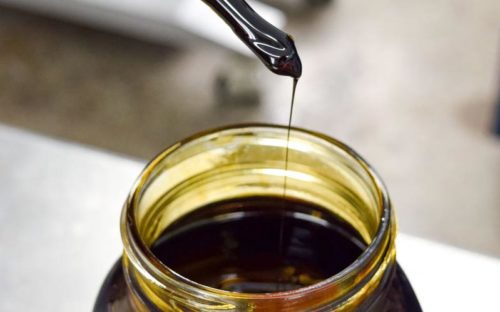In Other Words, Explain H4CBD. | Voluntate Shop
You can find the standard cannabinoids including THC, CBD, CBN, and CBG. You have undoubtedly heard of all of these cannabinoids. Of course, we're here to talk about one of the synthetic cannabinoids—H4CBD Distillate—but there are many more out there, both naturally occurring and manmade.
In this article, we will go over a wide range of topics related to H4CBD For Sale, including its definition, effects, possible side effects, whether it is found in nature or is synthetic, and much more. Let's go into the specifics of what H4CBD is and the potential side effects you can experience.
H4CBD IS WHAT?
Hexahydrocannabidiol, abbreviated as H4CBD, is a form of CBD that has been hydrogenated. The original CBD extract was developed in the middle of the twentieth century, and this is a synthetic version of that compound. Since H4CBD has not been commercially available until very recently, its significance has been limited to the realm of research.
However, in recent years, H4CBD Distillate products have entered the market due to their alleged benefits. We will explain how CBD is processed to create H4CBD For Sale, but in a nutshell, it is a synthetic or man-made cannabinoid. While CBD has a natural origin, H4CBD is artificially produced in a lab.
H4CBD: WHAT Are Its Effects?
Confusion arises as to the precise effects of H4CBD on the human brain and body. For starters, not enough study has been done on the topic. We now know that compared to regular CBD, H4CBD has a far higher affinity for the CB1 neuroreceptors in your brain.
H4CBD Distillate has a high affinity for CB1 receptors, whereas regular CBD does not. That's right; H4CBD has a heavy hand in engaging your brain's CB1 receptors. Although additional study is needed in this area, it is believed that H4CBD is up to 100 times more powerful than conventional CBD in a few specific areas.
H4CBD For Sale is expected to have some of the same basic effects as CBD, including anxiolytic properties, antidepressant properties, the ability to improve sleep and mood, relief from pain, and a dampening influence on inflammatory symptoms.
Again, further studies are needed to confirm these claims, but it seems that H4CBD shares many of CBD's benefits based on their commonalities and anecdotal evidence.
Yet, it's important to note that H4CBD Distillate may be psychoactive and so an intoxicant. All the physiological and psychological advantages of CBD are supposedly yours with H4CBD, plus the added bonus of some of the euphoric effects of THC.
When used in significant quantities, H4CBD For Sale can have certain intoxicating effects. Many consumers compare the effects of H4CBD to those of a 2:1 CBD to THC ratio, describing a sense of euphoria in both the body and the mind. Experiences like joy, pleasure, slowed reaction time, sedation, and an increased appetite are all possible side effects of THC use.
CONSECUTIVE EFFECTS OF H4CBD
There hasn't been nearly enough study done on H4CBD Distillate to know what impacts it might have at this time. Because H4CBD mimics the actions of both CBD and THC, its adverse effects may be connected to any or both of these cannabinoids. It's reasonable to anticipate experiencing fatigue, redness, and itching of the eyes, dry mouth, headache, nausea, and gastrointestinal distress. There is no evidence to support this, though.
HOW SYNTHETIC IS H4CBD Distillate?
Unlike cannabinoids naturally present in cannabis and hemp plants, H4CBD is a synthetic compound. Rather, H4CBD For Sale must be extracted or manufactured from other cannabinoids found in cannabis or hemp.
To what end is H4CBD manufactured?
Simply said, hydrogen atoms are added to CBD molecules to become H4CBD, which is why CBD is also known as hydrogenated CBD. It goes without saying that this is a scientific procedure that requires the controlled environment of a laboratory. To simplify things, to alter CBD's chemical composition, scientists add hydrogen atoms.
When exactly did researchers identify H4CBD?
The Todd Group, a group of scientists, identified H4CBD for the first time in the 1940s. Among the first to investigate the chemical makeup of cannabis was this pioneering crew.
To be more precise, the Todd group has synthesized hundreds of cannabinoids and identified many more.
We owe a great deal of our current understanding of cannabinoids to the work of the Todd group, which not only identified and isolated several of these compounds but also worked out how to synthesize many more from the naturally existing ones.

Comments
Post a Comment